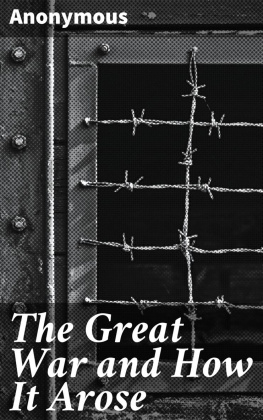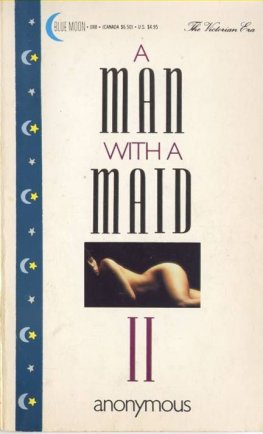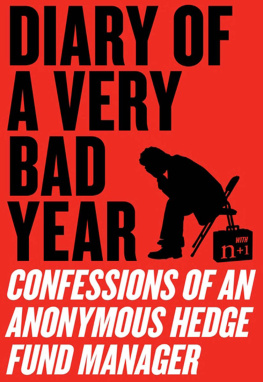SERBIA'S POSITION.
Table of Contents
On June 28, 1914, the Austrian Archduke Ferdinand and the Archduchess were assassinated on Austrian territory at Serajevo by two Austrian subjects, both Bosniaks. On a former occasion one of these assassins had been in Serbia and the "Serbian authorities, considering him suspect and dangerous, had desired to expel him, but on applying to the Austrian authorities, found that the latter protected him, and said that he was an innocent and harmless individual.":
"The Royal Serbian Government shall publish on the front page of their 'Official Journal' of the 1326 July the following declaration:
"'The Royal Government of Serbia condemn the propaganda directed against Austria-Hungaryi.e., the general tendency of which the final aim is to detach from the Austro-Hungarian Monarchy territories belonging to it, and they sincerely deplore the fatal consequences of these criminal proceedings.
"'The Royal Government regret that Serbian officers and functionaries participated in the above-mentioned propaganda. "
"The Royal Serbian Government further undertake:
"To suppress any publication which incites to hatred and contempt of the Austro-Hungarian Monarchy and the general tendency of which is directed against its territorial integrity;
"To eliminate without delay from public instruction in Serbia, both as regards the teaching body and also as regards the methods of instruction, everything that serves, or might serve, to foment the propaganda against Austria-Hungary;
"To remove from the military service, and from the administration in general, all officers and functionaries guilty of propaganda against the Austro-Hungarian Monarchy whose names and deeds the Austro-Hungarian Government reserve to themselves the right of communicating to the Royal Government;
"To accept the collaboration in Serbia of representatives of the Austro-Hungarian Government for the suppression of the subversive movement directed against the territorial integrity of the Monarchy;
"To take judicial proceedings against accessories to the plot of the 28th June who are on Serbian territory; delegates of the Austro-Hungarian Government will take part in the investigation relating thereto."
In effect Austria wished to force Serbia (a) to admit a guilt which was not hers; (b) to condemn officers in her army without trial at Austria's direction, which amounted to an acceptance of Austria's demands, subject, on certain points, to the delays necessary for passing new laws and amending her Constitution, and subject to an explanation by Austria-Hungary of her precise wishes with regard to the participation of Austro-Hungarian officials in Serbian judicial proceedings. The reply went far beyond anything which any PowerGermany not exceptedhad ever thought probable. But the same day the British Ambassador at Vienna reported that the tone of the Austrian press left the impression that a settlement was not desired, and he later reported that the impression left on his mind was that the Austrian note was so drawn up as to make war inevitable. In spite of the conciliatory nature of Serbia's reply, the Austrian Minister withdrew from Belgrade the same evening, and Serbia was left with no option but to order a general mobilisation.
An outline of the Serbian reply had been communicated to Sir E. Grey an hour or two before it was delivered. He immediately expressed to Germany the hope that she would urge Austria to accept it. Berlin contented itself with "passing on" the expression of Sir E. Grey's hope to Vienna through the German Ambassador there. The fate of the message so passed on may be guessed from the fact that the German Ambassador told the British Ambassador directly afterwards that Serbia had only made a pretence of giving way, and that her concessions were all a sham.
As Sir Edward Grey told the German Ambassador on one occasion "the Serbian reply went farther than could have been expected to meet the Austrian demands. German Secretary of State has himself said that there were some things in the Austrian Note that Serbia could hardly be expected to accept."
During these forty-eight hours Great Britain made three attempts at peace. Before all things, the time-limit of the ultimatum had to be extended in order to give the requisite time to negotiate an amicable settlement. Great Britain and Russia urged this at Vienna. Great Britain asked Germany to join in pressing the Austrian Government. All that Berlin consented to do was to "pass on" the message to Vienna.
Secondly, Sir E. Grey urged that Great Britain, France, Germany, and Italy should work together at Vienna and Petrograd in favour of conciliation. Italy assented, France assented, Russia declared herself ready, Germany said she had no objection, "if relations between Austria and Russia became threatening."
Thirdly, the Russian, French, and British representatives at Belgrade were instructed to advise Serbia to go as far as possible to meet Austria.
But it was too late. The time-limit, which Austria would not extend, had expired.
The British Charg d'Affaires at Constantinople discovered the true object in view when he telegraphed on July 29:
"I understand that the designs of Austria may extend considerably beyond the Sanjak and a punitive occupation of Serbian territory. I gathered this from a remark let fall by the Austrian Ambassador here who spoke of the deplorable economic situation of Salonica under Greek administration and of the assistance on which the Austrian Army could count from Mussulman population discontented with Serbian rule."
So Austria contemplated no less than the break-up of the whole Balkan settlement to which she and Germany had been parties so recently as 1913. She was to take advantage of the weakened condition of the Balkan peoples (as a result of the Wars of 191213) to wage a war of conquest right down to the gean Sea.
FOOTNOTES:
Table of Contents
Great Britain and the European Crisis, No. 30.
Great Britain and the European Crisis, No. 4.
This demand was pointedly summed up by Mr. Lloyd George at the Queen's Hall, London, September 19, 1914, when he said:
"Serbia must dismiss from her army the officers whom Austria should subsequently name. Those officers had just emerged from a war where they had added lustre to the Serbian arms; they were gallant, brave and efficient. I wonder whether it was their guilt or their efficiency that prompted Austria's action! But, mark you, the officers were not named; Serbia was to undertake in advance to dismiss them from the army, the names to be sent in subsequently. Can you name a country in the world that would have stood that? Supposing Austria or Germany had issued an ultimatum of that kind to this country, saying 'You must dismiss from your Armyand from your Navyall those officers whom we shall subsequently name.' Well, I think I could name them now. Lord Kitchener would go; Sir John French would be sent away; General Smith-Dorrien would go, and I am sure that Sir John Jellicoe would have to go. And there is another gallant old warrior who would goLord Roberts. It was a difficult situation for a small country. Here was a demand made upon her by a great military power that could have put half-a-dozen men in the field for every one of Serbia's men, and that Power was supported by the greatest military Power (Germany) in the world."
















